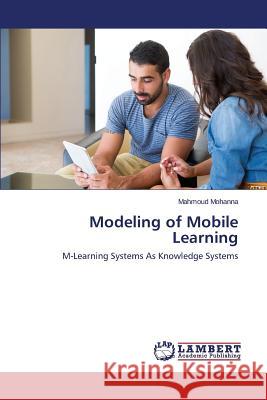Modeling of Mobile Learning » książka
Modeling of Mobile Learning
ISBN-13: 9783659635342 / Angielski / Miękka / 2014 / 260 str.
With the development of computer and telecommunication technologies, a new kind of distance education mode i.e. mobile learning has been emerged. M-learning can provide learners with the maximum learning autonomy. It can also provide other actors such as instructors and administrators with more flexible teaching and managing methods. Despite of the fact that m-learning is a fast growing technology, it faces many problems which have to be solved to allow it taking its rightful place in the field of technology-based learning. The main m-learning drawback is the absence of standard and the awareness about how it can be well integrated in a learning process. The principal objective of this research is to formalize a generic comprehensive model for m-learning in order to understand the m-learning different components and also to guide subsequent researchers in m-learning domain. In this book, I deal with m-learning systems as knowledge systems. This allowed me to employ CommonKADS knowledge engineering methodology in order to realize the research objectives. Following that methodology, modeling of m-learning goes through three consecutive stages; context, concept, and artifact modeling.
With the development of computer and telecommunication technologies, a new kind of distance education mode i.e. mobile learning has been emerged. M-learning can provide learners with the maximum learning autonomy. It can also provide other actors such as instructors and administrators with more flexible teaching and managing methods. Despite of the fact that m-learning is a fast growing technology, it faces many problems which have to be solved to allow it taking its rightful place in the field of technology-based learning. The main m-learning drawback is the absence of standard and the awareness about how it can be well integrated in a learning process. The principal objective of this research is to formalize a generic comprehensive model for m-learning in order to understand the m-learning different components and also to guide subsequent researchers in m-learning domain. In this book, I deal with m-learning systems as knowledge systems. This allowed me to employ CommonKADS knowledge engineering methodology in order to realize the research objectives. Following that methodology, modeling of m-learning goes through three consecutive stages; context, concept, and artifact modeling.











